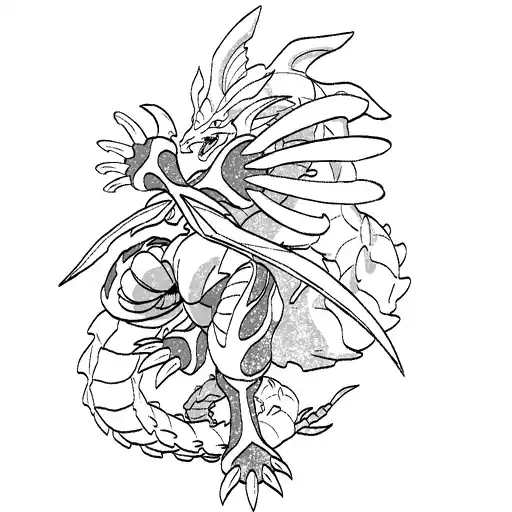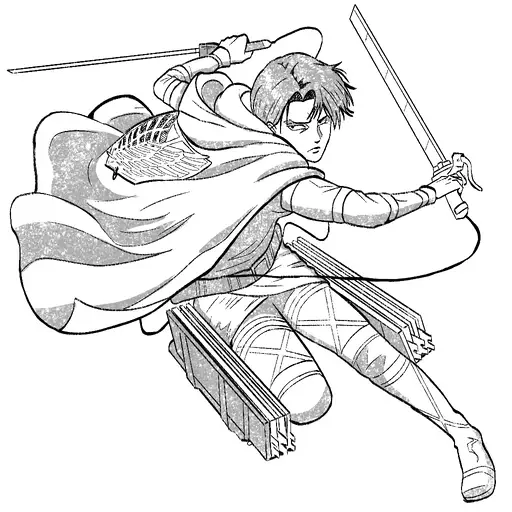Introduction
In the rich tapestry of anime, few stories capture the raw essence of love and conflict like “Winter Cicada.” This Boys’ Love (BL) narrative, set against the backdrop of the tumultuous Boshin War, offers a poignant exploration of forbidden romance between Kusaka, an officer of the Imperial Army, and Akizuki, a leader within the Shogunate. As they navigate the treacherous waters of loyalty and betrayal, their love is tested by the harsh realities of duty and honor.
This intricate story is more than just an anime; it’s a historical journey that intertwines the personal and the political. “Winter Cicada” stands out not only for its emotional depth but also for its portrayal of the fragile beauty of human connections during one of Japan’s pivotal eras. The narrative’s significance is underscored by its ability to resonate with audiences long after its initial release, making it a timeless piece within the Boys’ Love genre. In this article, we delve into the cultural and historical context of this epic tale, unravel the intricate layers of its storyline, and explore its lasting impact on both anime and global culture.
Background and Context
Unfolding the Boshin War: A Historical Perspective
To fully appreciate “Winter Cicada,” it’s essential to understand the historical context in which it is set. The Boshin War (1868-1869) was a civil war in Japan, marking a period of significant change as the country transitioned from the Tokugawa Shogunate to the Meiji government. This period was characterized by political upheaval and cultural shifts, setting the stage for the modern era.
In anime, the Boshin War serves as a dramatic backdrop that heightens the stakes of the characters’ personal struggles. The era’s intrinsic conflict between tradition and progress mirrors the internal battles faced by Kusaka and Akizuki. As Japan grappled with its identity, so too did these characters, caught between their love for each other and their duties to opposing factions.
The Rise of Boys’ Love: Cultural Significance in Anime
Boys’ Love, often abbreviated as BL, is a genre that explores romantic relationships between male characters. Originating in Japan, this genre has grown significantly in popularity, attracting a diverse audience worldwide. BL narratives often delve into themes of acceptance, identity, and forbidden love, offering a unique lens through which societal norms and expectations are challenged.
“Winter Cicada” stands as a quintessential example of Boys’ Love, with its intricate storytelling and emotional depth. It transcends mere romance, weaving a tale that is as much about personal sacrifice and societal pressure as it is about love. This genre’s cultural significance lies in its ability to provide a platform for exploring complex emotions and relationships, often pushing boundaries in ways that resonate with audiences seeking representation and authenticity.
Main Insights on ‘Winter Cicada’
The Forbidden Romance: A Tale of Love and Sacrifice
At the heart of “Winter Cicada” is the forbidden romance between Kusaka and Akizuki. Their love, first ignited through secret English lessons, blossoms into a deep and tender connection. However, their relationship is fraught with challenges, as societal norms and their respective allegiances pull them in opposite directions.
This narrative element of forbidden love is a common trope in Boys’ Love, reflecting real-world struggles faced by those in unconventional relationships. The emotional intensity of Kusaka and Akizuki’s story is heightened by the historical context, where such a relationship was not only socially unacceptable but also dangerous. Their love story serves as a powerful commentary on the cost of societal conformity and the courage it takes to defy it.
Duty versus Desire: The Internal Conflict
Kusaka and Akizuki’s journey is marked by a constant struggle between their personal desires and their duties. Kusaka’s return as an officer of the Imperial Army places him at odds with Akizuki, who has risen to lead his clan within the Shogunate. This conflict is emblematic of the broader theme of duty versus desire, a recurring motif in historical and romance narratives.
In “Winter Cicada,” this internal conflict is portrayed with nuance, highlighting the characters’ emotional turmoil as they navigate their roles in a rapidly changing society. Their story emphasizes the complexity of human emotions, where love and duty are often at odds, forcing individuals to make heart-wrenching choices.
A Historical Epic: The Boshin War’s Impact on the Narrative
The Boshin War serves as more than just a backdrop for “Winter Cicada”; it is a catalyst for the narrative’s progression. The war’s impact on the characters is profound, shaping their decisions and relationships. As the conflict rages on, Kusaka and Akizuki are forced to confront not only their personal loyalties but also the broader implications of their actions on those around them.
The historical setting adds a layer of authenticity to the story, grounding the characters’ experiences in real-world events. This connection to history enhances the narrative’s depth, allowing viewers to engage with the story on multiple levels. It also serves as a reminder of the societal changes that have shaped modern Japan, offering insights into the country’s cultural evolution.
Challenges and Opportunities
Navigating Misunderstandings: Addressing Common Misconceptions
One of the challenges faced by Boys’ Love narratives like “Winter Cicada” is the potential for misunderstanding or misinterpretation. The genre is often stereotyped or dismissed as niche, despite its rich storytelling and cultural significance. To address these misconceptions, it’s crucial to highlight the genre’s diversity and the depth of its narratives.
“Winter Cicada” exemplifies the potential of Boys’ Love to convey powerful stories that resonate with a wide audience. By focusing on universal themes of love, sacrifice, and personal growth, the narrative transcends its genre, offering insights that are relevant to all viewers. Educating audiences about the genre’s nuances and encouraging open-minded engagement can help dispel stereotypes and foster appreciation for its contributions to anime and global culture.
Opportunities for Cultural Dialogue: The Global Impact of ‘Winter Cicada’
The global popularity of Boys’ Love and anime presents opportunities for cultural dialogue and exchange. “Winter Cicada,” with its historical setting and emotional depth, serves as a bridge for international audiences to engage with Japanese culture and history. This cross-cultural interaction can lead to greater understanding and appreciation of different perspectives, fostering empathy and connection.
As Boys’ Love continues to gain traction worldwide, there is an opportunity to explore new narratives and themes that reflect diverse experiences and identities. By embracing this genre, creators and audiences alike can contribute to a more inclusive and dynamic cultural landscape.
Future Outlook
Trends in Boys’ Love: Where the Genre is Headed
Looking ahead, Boys’ Love is poised for continued growth and evolution. As societal attitudes towards gender and sexuality become more inclusive, there is a growing demand for narratives that reflect these changes. Future trends in Boys’ Love may include greater diversity in character representation, more nuanced storytelling, and exploration of themes beyond romance, such as identity and self-discovery.
The success of stories like “Winter Cicada” demonstrates the genre’s potential to captivate audiences with compelling narratives that resonate on multiple levels. As the genre evolves, it will continue to push boundaries and challenge conventions, offering fresh perspectives and fostering a deeper understanding of human relationships.
Conclusion
“Winter Cicada” is more than just a Boys’ Love anime; it is a profound exploration of love, sacrifice, and the human condition set against a backdrop of historical change. Its narrative, rich with emotional depth and cultural significance, offers insights into the complexities of human relationships and the impact of societal pressures. As Boys’ Love continues to evolve and reach a global audience, stories like “Winter Cicada” will remain timeless, resonating with viewers and contributing to a greater understanding of diverse experiences and identities. As we celebrate this genre’s contributions to anime and culture, we are reminded of the power of storytelling to transcend boundaries and connect us all.





